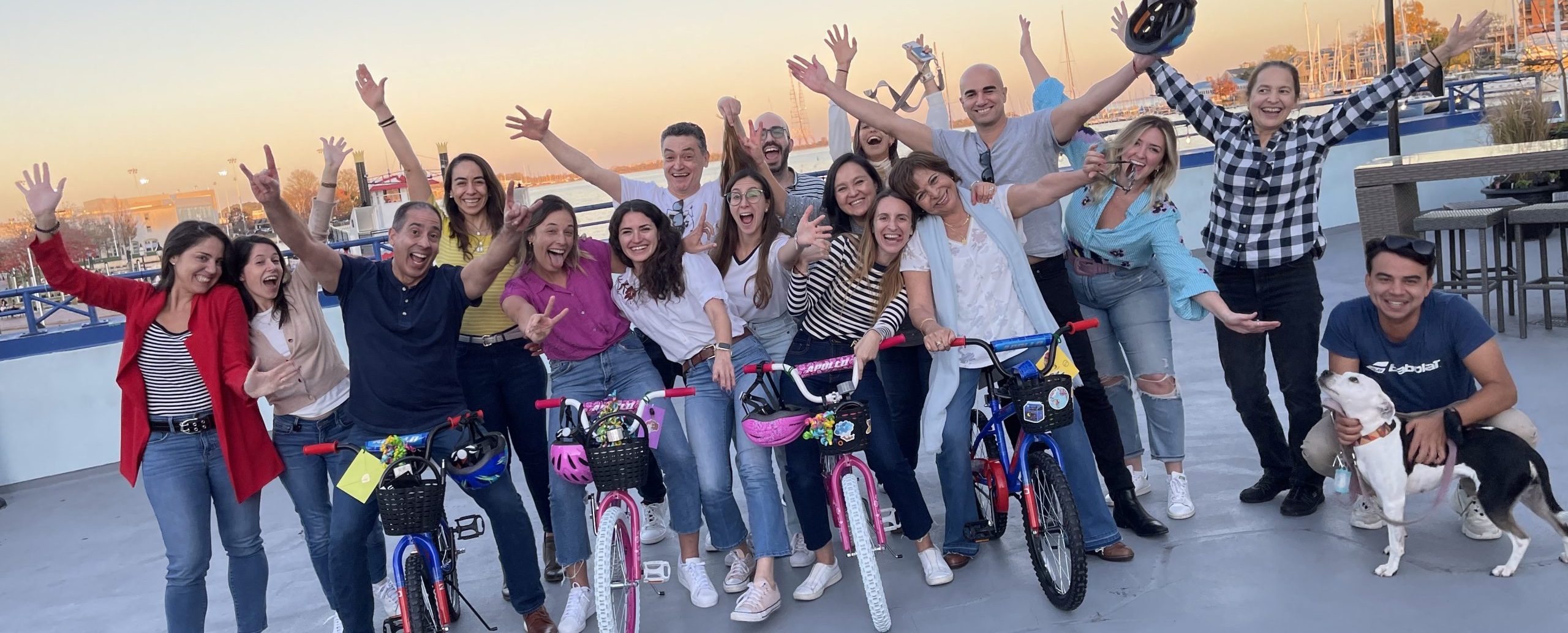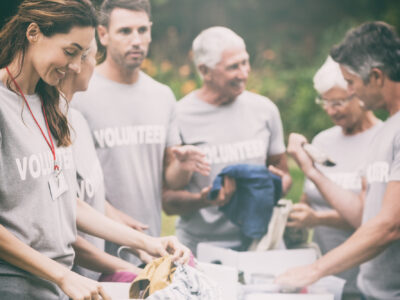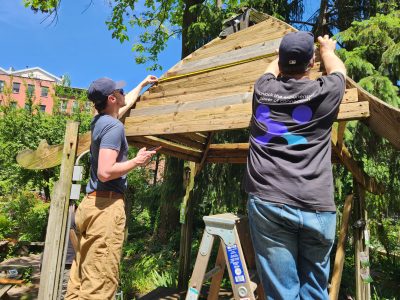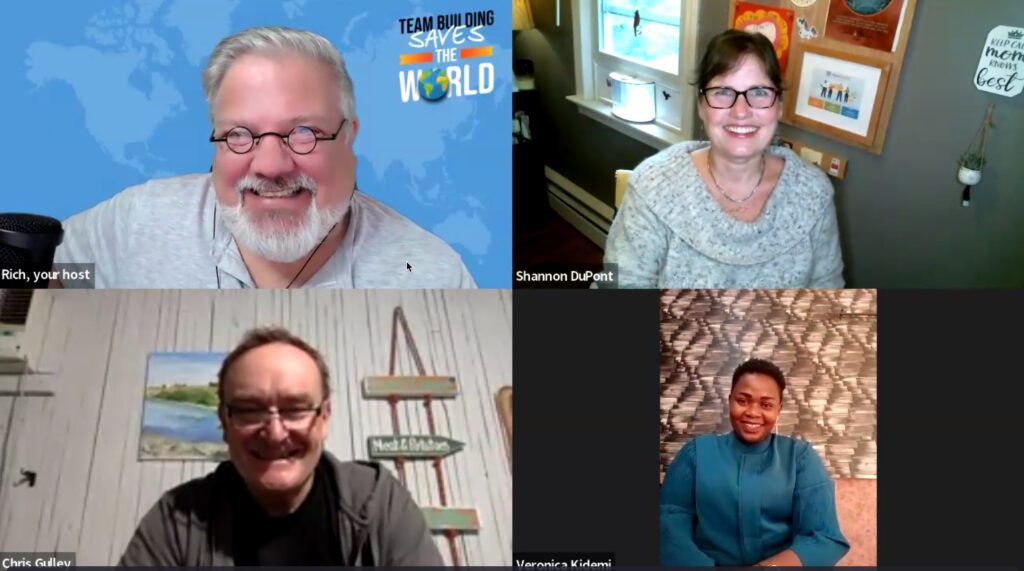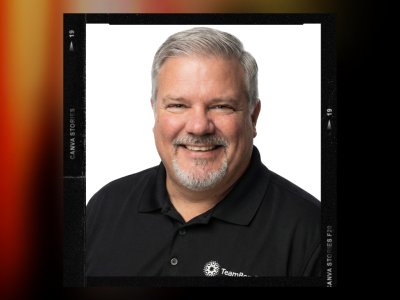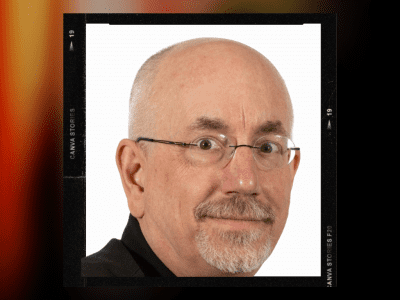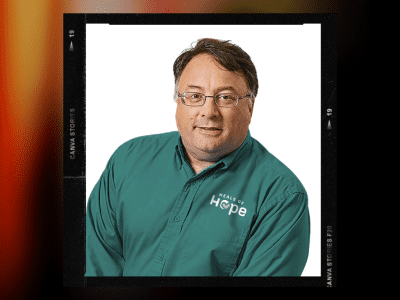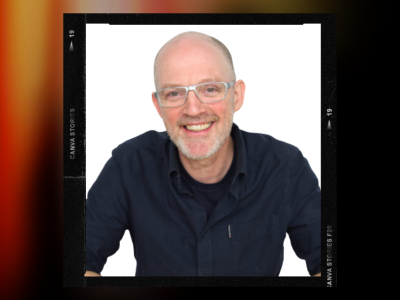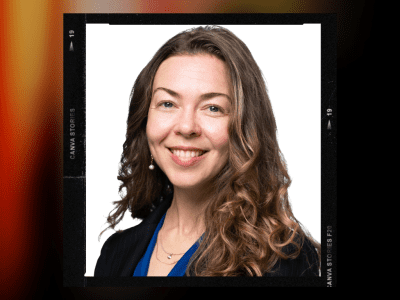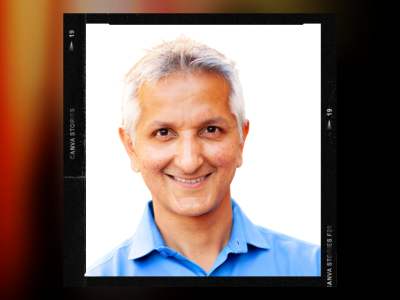STRONG TEAMS DON’T HAPPEN BY CHANCE 
Breaking Social Barriers & Changing Lives
w/ The Hand Project
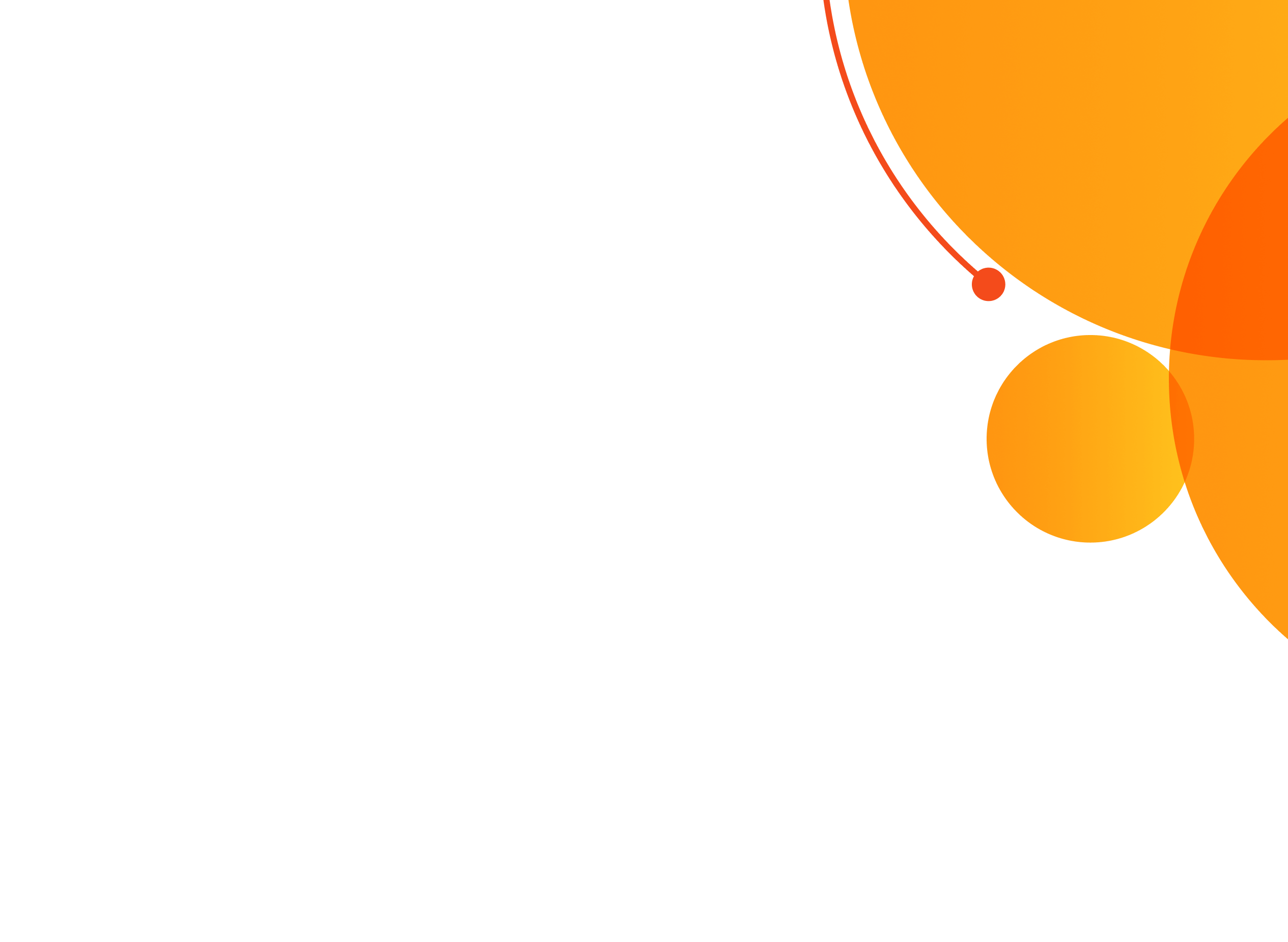
Use the buttons above to listen now.
Transcript - Breaking Social Barriers & Changing Lives
Rich, Host: Warning. This episode of Team Building Saves the World features stories of violence, violent attack, amputations with a machete, and spousal abuse. If any listeners feel sensitive about these subjects, you may wish to skip points of this episode. Approximately from 8 minutes and 45 seconds to 9 minutes and 0 seconds, and from 13 minutes 0 seconds to 14 minutes 30 seconds.
With these warnings out of the way, I also feel it needs to be said that the people you are going to meet on this episode are some of the most amazing human beings it has ever been my honor to interview. You will not only hear about the acts of horror that took place in their lives, But also how they survived those moments to become inspirations for their community.So please listen and enjoy The Hand Project on Team Building Saves the World.
Hello team. It’s me, your old friend, Rich Rininsland host of Team Building Saves the World. The show where I speak to thought leaders from around the world, discussing variable strategy. to help you and your team build a better work environment. And today, we’re going to lend a hand. Actually, we’re going to lend a lot of hands with the creator and director of The Hand Project, Chris Gulley, Hand Project Ambassador, Veronica Kademi, and returning friend of the show, the director of program development for TeamBonding, Shannon Lane Dupont.
But first, I have to share a lot of love with my supporters at TeamBonding. If your team is ready to experience teamwork through the power of play, then visit TeamBonding.com tp learn more. Now, team, join me in welcoming my guests. People who have been giving mechanical prosthetic hands completely free of charge to needy people all across the world.
But, they’re also returning dignity and possibility to these people’s lives. And they’ve been doing it for the past five years. Chris Gulley, Veronica Kademi, and my friend, Shannon DuPont. Hello everybody! Hello. Hello!
I am going to apologize right now. Uh, because Veronica is calling to us from Africa. Is that right? Veronica. Okay, and I speak apparently very quickly as she continually reminds me, so we’re going to keep things going. Um, and I’m going to try to remember that when I’m talking to her that I need to talk a little slower.
Alright, first off, guys, thank you so much for coming out today. It means the world to me. I love this program that we’re starting to get together with, with TeamBonding. But first, um, I have been told by my producer, Lindsey, that Chris does not like talking about himself. So Veronica, I’m going to ask you, can you please tell my listeners out there, my team, who Chris is and how this whole project got started?
Veronica Kidemi, Guest: Oh, thank you so much. Chris Gulley is director of The Hand Project. He is doing the project of provisions of hands, free of charge, in Africa and other parts of the world, as I knew Chris last year while he was providing hands at Zambia in Tanzania in November. And there is where I met Chris. He’s a very generous person and the most goodhearted person I have ever met in life. He really appreciates and he’s a very hardworking person.
Chris is working too hard. When you don’t, if there is no anyone who will just tell him like, Chris, please take some water to drink. He will work throughout the day. So he’s a very hardworking person. I used to call him Papa because he’s a very good take care of people. He’s this person who just to feel empathy with people, mostly these vulnerable people and these who lost parts of their body, who are living with disabilities, particularly hands disabilities. So you can find this kind of hope in, on his face. When he looks at you, he’s like, don’t worry, your daughter, everything gonna be okay. Every thing going to be okay. You can find someone can come while he’s a bilateral amputated person, but Chris will work with that person until he, he makes sure that the person is happy and he will manage it by himself or herself.
So I have, I’ve seen something very special from Chris. He just feels the work that he’s doing, like, the person who just experienced the same, the same problem, the same atrocity, the same trauma, the same shame, and everything, and then gets back his hands. So, he just feels it. For me, Chris is, uh, is a person whom, uh, I can’t tell anything that is disturbing my mind and he’s a very person who can listen and he can calm you down.
As for me, I had this time that I passed this through and with my father, my brother in law and my husband’s family and whatever, when he just called me on zoom and I say, I’m not okay. Because of this, you can do your life. You can do this and that. And I feel like, wow, Papa is telling me that. So I used it to call him Papa just to, just to give him that, position, like a father who is taking care of the daughter.
So for me, Chris is my papa, like my father. I’m an adopted daughter for Chris. So..
Veronica Kidemi, Guest: Yes, so happy..
Rich, Host: Thank you, that’s amazing. Thank you, Veronica. I have to, for those of my team out there who are only listening to this audio. That past three minutes was like the most miserable thing in Chris’s life. He covered his face so many times during that entire lovefest.
Chris Gulley, Guest: It wasn’t just, it wasn’t miserable, it was beautiful in a way. Thank you, yes, yes
Rich, Host: Indeed.
Chris Gulley, Guest: I, I seldom take credit for, for anything that I really do. Um, it’s just part of my nature and my, my fact that I’m a Kiwi and, um, and I always thought when Veronica started calling me Papa, I thought it was just because I’m, I’m old, but apparently there’s a lot of respect in there.
So, Veronica, you’re beautiful. I love you. And thank you.
Rich, Host: Wonderful.
Veronica Kidemi, Guest: Thank you. Thank you.
Rich, Host: Uh, Chris, let’s actually get into The Hand Project. That’s what everybody’s really here to hear about. How did this get started? What was it that made you decide that this was a, to be a massive focus of your life?
Chris Gulley, Guest: Well, I used to run a team building company in New Zealand many, many years ago. And we started doing some of the sort of the events with some charity aspect. So building bikes or giving, giving to the homeless shelter, that sort of thing. And then, um, came across, a project with, uh, a program with hands.
And I fitted my first hand in Bangalore many, many years ago. I think about 13, 14 years ago now. And I saw the difference it made with this particular man. I can share the story of this man that I fitted, if you like.
Rich, Host: Yes. Please
Chris Gulley, Guest: It’s still, it’s very vivid to this day. This was a 70 year old gentleman in, um, in India. 20 years earlier, he was a bicycle courier and, he was riding his bicycle with a load of silkworms and a thief came along with a machete across the handlebars of his bike and, um, and chopped his hand off and stole the delivery. And, and this man had lived, for 20 years on the streets of Bangalore, or Bengaluru now, um, without a right hand. And a right hand means everything in that culture. And the thing, the thing that got me that I was so focused on the actual doing the fitting of this hand that I never really looked at the person. Until the very end. And when I looked up, he had, he had tears running down his cheeks.
And, um, I’ll never forget that. It still gives me goosebumps to this day. And I could sense the relief and the feeling of possibility for this man. And that stayed with me. And I sort of dabbled in the process for a while and then realized that, we could, we could do so much more with these people, and, that led me on to developing a, a whole system of fitting hands and arms that is quite revolutionary, it enables us to fit, I think this year it’ll be about 4, 000 hands this year that we’ll be fitting on people.
And that’s growing every year. So that’s, that’s how it came about. I’m not a, I’m not a medical person. I’m not a, uh, anything like that. I have a, I, I say I have a BCS, a bachelor in common sense. And, uh, and anyone who knows those Kiwis of my generation, we’re very, um, very good at, working with tools, hammers and drills and things.
And that’s what you need. You need that. And a good imagine, good problem solving skills because every residual limb, every stump is different. So there you go. It’s enough.
Rich, Host: And Shannon, let’s go to you. Uh, how did TeamBonding get involved with the hand project?
Shannon, Guest: David Goldstein, um, the owner and our fearless leader found The Jand Project and was interested in it several years ago.
So he introduced me to Chris and we started having meetings a couple years ago, I suppose. And, and it took quite some time to get this officially on board, and to get people behind it too. I think that some people thought it might be too difficult or challenging and, you know, not necessarily worth us adding as a program.
But it absolutely was. We started selling this program this January, and I’m so happy with the results of, you know, what the clients say in response to these events, the impact that we have, one of the very special things that we do at the end of each of these events is have either Chris or Veronica join us on zoom at the end of the meeting so that they can be directly communicating with the clients. Veronica is so lovely to share her story and explain how she’s both an amputee and recipient and how she’s become an ambassador for The Hand Project since then.
So, it was a lot of logistics and a lot of, a lot of time to sort of get this to become a reality, but now that it is, I’m so excited that we are offering this program, that clients are interested in it, they’re buying it, they’re seeing the opportunity for a really unique charity donation that has a huge impact on people.
And it’s just been beautiful to see and, and working with Chris and now Veronica too. I can’t tell you what a joy it is. My eyes are leaking here just listening to their stories. Um, they’re incredible people and it’s been a privilege to collaborate with them and, you know, join this project and this mission.
Chris Gulley, Guest: The feeling is mutual, Shannon.
Rich, Host: Veronica, I would love to hear your story for my team out there who may not eventually, you know, be able to meet you on Zoom in person at an event. Could you share some of that story with us now? Yes,
Veronica Kidemi, Guest: Yes,I can.
Rich, Host: Please do.
Veronica Kidemi, Guest: Okay, thank you. It was on 20, 25th of September, 2020. When I was back from work and I found my husband hiding behind the door with the machete and what I just had is a very big bang from behind and I just turn around and find the husband.
He wasn’t at home by then. He was working somewhere else in the country. But he just came home secretly, hiding himself behind the door. And when I come from work, he just attempted to kill me with a very sharp machete. But God was so merciful that he protected me. He just succeeded to amputate my right hand right on spot and cut, when I was just defending myself this way, he just cut me this, uh, this place.
Then I have been fixed with a plate. Oh, this hand also, yes, with a plate. He just cut me some parts of the body. Uh, but I just cried hardly, uh, seeking for assistance and, many people just come and rescue me from him. He just to, intend to kill me seriously. But God was with me. He rescued me from that and I went to the hospital.
I stayed there for three months. Then I come back home. I was just a like running crazy when I just met a man. Oh my god. I was like I can’t even turn the way that I’m going and run to home when I find someone who with a machete or another sharp object. I don’t trust the people. I just see going back where I was coming from.
And then I was just like I was about to run crazy. Don’t believe, that what’s happening to me. I never expected that my own husband who voted to protect me, the father of my two boys, turned into a monster who wanted to kill and swallow me alive. Oh my God. It was like a mystery, something that I never imagined in my life.
So, because I don’t know what caused him to do that. By the way, he was just sometimes tell me to do, you are not going to do work again. You have to stay home, not sharing the kids. Imagine in my family, we are seven and I am only the one who managed to go to secondary school up to university level. I am one.
I am an orphan. Since 10 years old, my mother’s and my mother and my father died. And there are these people who just, are sent by God. He just got sent people with very good hearts. They are, they have assisted me. They have made me sure that I go to school. They were encouraging me. They volunteered their time and financial to support me.
Then someone come and tell you, you are not going to work anymore. While the whole family are looking at me, my young sisters and my elder sisters are with me like, Vero, can you assist me with this and that? When you think, my family and, uh, I was like, no, I will, I will, I’m, I’m going to work and I will not, leave the work, I’m going to work.
So for him. It is a problem a little bit. I remember that in September, we were in a short break and we volunteered to go and train students on how to answer questions correctly, when the final examination, and that is what caused the problem. Because when he heard that I was there and it was a break, He’s he was like, why are you going there to volunteer instead of staying at home and nurturing the kids.
So that’s what raised the problem. As I came to realize after I get the attack. And when I was in the hospital, I come to to hear those stories that the man was complaining that why did I go to school to volunteer teaching and that? So now, um, I guess he collected the pieces and rebuild the very new vision of Veronica, who can stand alone, who can be the voice of the voiceless women, because in the society where we are raised, the male dominated society, that projects society where men are uplifted and women are taken for granted and they are taken as weaker sex. Who cannot even make decision on themselves.
Therefore, for me, seeing other women facing the same atrocities that I have faced the while I was an educated one and I had my job, I was managing to live my life without a man, by the way, because I was managing to buy food and whatever I want, by myself.
But how about these women who didn’t go to school, who are, they’re just begging a man to assist them with everything they need. How about them? If I, who are contributing to the with some issues in the family with my work is, is getting that attack. How about the woman who is not capable of just buying shoes by herself?
He is just begging everything in our society. This violence is so rampant. It is so rampant and it is because we have the wall. They have built the wall, a certain wall that when a woman, you just leave their family because of them, some kills and the way that the man is treating you badly. They don’t believe that the man is the one who is the problem, but the woman.
So they say, ah, that family is no good family because this girls do not stay at the, uh, husband’s home. They are just leaving their husbands. So the family says that this is the shame. So when you go home, uh, back home, uh, after quarreling with the husband, the family will tell you to go back to your husband and they say, don’t you get food to eat there?
If you get food there, you just go back. It’s not like you are hungry. You just need food. You don’t need the peace of mind or whatever. You just need food there. So, now I’m the director of the non government organization known as Voice of Women Africa. Veronica is now advocating and amplifying voices to of the voiceless women who cannot stand alone and who cannot see the good and the bad thing in the society.
As for me, I have run from the place that I were living because of some attack from the society leaders who wants me to go back to my husband. You can imagine, amazing. Yes. So, for now, I’m pursuing my master’s degree in quality assurance. Yes, it is good.
Rich, Host: Yes, it is. Well, first, Veronica, let me, let me just say, uh, on behalf of all of my listeners, we’re so sorry that that ever actually happened to you.
Nobody should have to suffer what you’ve suffered through, but you are an amazing human being, your capacity for survival and seeing yourself as, as what you can be. As opposed to what everybody was telling you you should be is just, I mean, we have to applaud you. That’s, that’s incredible.
And I want to get more into this, especially Chris, finding out how you met this amazing person and all the other people that you’ve been helping. I do need to step away for a brief second. This seems so improper right now, but I just have to do it because I have to talk to all of my team out there about a company.
I’m very proud to be a part of because they let me meet people like this. TeamBonding. TeamBonding was founded over 20 years ago with one simple question. How can employees have a great time while fostering strong, authentic bonds between people who work together? No matter where your company is located, TeamBonding offers powerful, engaging, custom team building events designed to get the best out of your team anywhere in the world.
They’ve created a catalog of innovative events using the power of play as a learning tool and tapping into the correlation of work and play, TeamBonding. So whether it’s scavenger hunts to Jeopardy, and now The Hand Project. The TeamBonding of activities, whether they’re live, virtual or hybrid, maximizes the impact of team building with an accent on fun.
Visit TeamBonding.com to schedule your event now. TeamBonding, when you want seriously fun results. And we are back talking to some seriously amazing people. Chris, let’s dig into About The Hand Project. Because I know my group out there, they’re going to hear this, they’re going to hear Veronica’s story, and they’re going to just be absolutely wowed by it.
Let’s talk about the fundamentals of it. What is the impact of this event that somebody out there who’s thinking about purchasing it for their group should know?
Chris Gulley, Guest: I think the key thing with this is that, that it, it sounds very trite, but it’s win, win, win. That’s it. So the, the people who, the participants, so the teams that do this, who participate in it, from my experience with it, 99.9% of the people, have total buy in to it. And they feel good that the fact that they’re actually doing something real for people. It’s not a made up kind of, you know, make believe kind of event. It’s a real thing. And they forget the fact that they’re doing a team building event that happens, organically. Yeah. Um, so they work really, really closely together and they assemble something that’s, that’s going to make a difference. So, that’s a win. They feel good about the fact that their company has chosen to do something, that’s going to make such an impact. You know, we’re, we’re spending that money, that team building money wisely.
And then at the other end of it, there’s the, well, and those, but the participants also get a kind of a better perspective on, on their own lives, perhaps like a little reminder of, wow, our lives are really good, you know, when we hear some of the stories of the people, because, you know, Veronica has got her story. And, um, and every single person who receives one of our hands or arms or whatever we’re giving them, um, they all have their own stories. They all have their own history and, and, you know, and, and trauma. And then the other end of it, there’s the impact it makes with someone like Veronica, and it affects not just Veronica, but it affects her family and it affects her community.
And when I first met Veronica, she was so shy. So she, can I get into that a little bit?
Rich, Host: Please, Yeah. I’d love to.
Chris Gulley, Guest: Yeah. So we’re in, in, in Bayer regional referral hospital in Tanzania and Veronica had traveled, I don’t know, hundreds of kilometers to be there. And I was working on a lady, a Muslim lady whose husband had chopped off both of her hands, um, something to do with, I can’t even remember the story and I don’t really want to, and I was having real trouble, um, communicating because the, local language is Swahili.
And so I asked if there was anyone who spoke English and Swahili and Veronica put up her remaining hand and, and I asked Veronica to help me and I could, I could immediately see this spark, this fire in, in Veronica anyway. And she helped me, with this, the communication and, and she helped me all throughout.And I’m so proud to have her as one of our ambassadors in Africa and, and, and now coordinating everything in Tanzania. She’s an amazing person. Did I answer your question? Yeah. Yeah. Yeah. More than
Rich, Host: Yeah. Yeah. Yeah. More than, thank you,
Chris Gulley, Guest: It’s makes a huge impact. It has a ripple effect, not just in where we’re fitting hands, but it has a ripple effect also for the teams who are doing it for the people participating.
Rich, Host: Shannon, let’s actually talk about what they’re going to get along with this. As I understand it, I’ve, I’ve taken part in it myself in the fact that I both sat in on one and you know, you’re going to be setting me out soon enough to actually lead these things myself. But, um, they are creating not a prosthetic hand, but a tool.
Is that correct?
Shannon, Guest: That is correct. Yeah. Um, as Chris likes to point out, and this is true, actual prosthetic hands are extremely expensive and require an absurd amount of upkeep and maintenance. And generally speaking, in the places where these mechanical hands are being donated, access to those real prosthetic hands is limited.
And even if they got one, once it started to act funky, it would be over for them. It’s not a lasting, um, gift to them. So mechanical hands are designed for functionality. They have, I know that we’re on, I was just about to show you like we were just on video, but not everybody’s watching that way. They have a grip at the top, um, that can clamp down and hold items, basic items, things like spoons and forks so that that person can feed themselves again.
Chris showed me a video one time of a gentleman who was literally using like a table saw with his tools, with a mechanical hand, which is incredible. It enables them to write again, to participate in school again, to, you know, get back into the workforce again. So these mechanical hands are extremely functional.
They’re extremely durable, which is another really big element to it. And so they last, they last for a long time. So that the people who’ve received them really have those opportunities. And in addition to that, the mechanical hand, which is what we build during the events themselves, we are also donating a cosmetic hand for every one of these people as well.
So Chris able on site to, you know, match skin tone fairly well, uh, and create an actual cosmetic hand. So that the, the stigma of having an amputation, which is huge in Africa and India. Uh, so that kind of goes away cause the hand sort of blends in and it makes you look like, nothing different is happening.
So the, the recipients receive both hands and they can use either one of them and they kind of switch back and forth depending on whether they need to do something or whether they’re looking to just kind of blend in and fit in. So those are the two major donations. We also design these lovely storage bags for these hands so that participants are, I’m sorry, not participants, well, the participants get to design the bags and put their name, their client name. And then, you know, months later, when these hands get into the hands of the recipients, we’re able to take pictures of those recipients, holding those decorated bags and share them with the client after the fact. So they see this is the person who got our hand that we made for them.
And one other little point that I, I think matters too, is that. As Chris said, the ripple effects for this are enormous, and it starts at the very beginning, even in the manufacturing process of these hands. We’re using different companies that employ people with disabilities. So, they’re the ones that are building the tools that you’re then taking.
So you’re affecting their lives, you’re affecting, as Chris said, the people who are participating in the event and giving them a real you know, perspective on on life and how, yeah, like I said, like how good ours really is when you when you look at what other people have experienced. And then, of course, it affects those recipients in ways that are incomprehensible.
And yes, and their families who won’t have to care for them as much. I know some of the people that have received it, you know, they haven’t they haven’t been able to feed themselves for years and getting one of those mechanical hands. Just, just that alone gives them the ability to do that, that frees up whatever family member had to help them eat prior to that.
So it’s just, it’s, I mean, it goes out from the center and it just affects the entire community, getting these people that functionality again, helping them get past the stigma that they’ve been facing. And just giving them, you know, a sense of hope and that there are people that are, are looking to help them in this world.
Rich, Host: And Chris, what else does the, uh, the financial aid that comes along with, uh, the, the corporations building these, the tools for you, uh, what else comes along with that, with that, I don’t want to say that price, but yeah, the cost of what they’re putting into it.
Chris Gulley, Guest: Sure. So, so the, the actual, the mechanical tool that, that Shannon was talking about, that’s, that’s one small part of a whole supply chain. And so what, what, uh, our customers, our clients are paying for that one tool actually pays for the entire project. And, so that pays for, for the cosmetic hands, which are 3D printed, it pays for, we, we fit anyone who’s been amputated from the wrist right through to even when they’ve lost their complete collarbone.
And we do that with a material called thermoplastic. So thermoplastic and strap, Velcro straps and, uh, all sorts of bits and pieces, it pays for all that it pays for. So for example, in, in, uh, in just over a week, I’ll be, or two weeks we’ll be in, in Tanzania again. And we’re fitting, I think, 700 people over two weeks.
So that require a team of orthopedic technologists who have developed, they’re coming from different countries, they’re coming from Ghana, from Uganda, South Sudan, Tanzania, they’re coming to, Tanzania. And, we travel as a group, to five different centers and it pays for all of that. So it pays for everything.
And it also pays a little bit for research and development. So we’re in the process of developing a, a newer, better mechanical hand. So, that’s what it pays for.
Rich, Host: Fantastic. I mean, helping, even just helping people get to you. So that everything can be molded to fit to them.
Chris Gulley, Guest: True. So, yeah, one of the, so we also have a small charity that we set up. It’s based in Germany, but quite often people can’t come because they don’t have the, the, the three or four dollars to get the transport on the day. So we have a fund that we set up for that, but I made sure. That we set this up where we don’t rely on donations, because if you’ve ever worked in a, in a, trying to get donations, it’s terrible.
So the only way this is really fully funded is through these team building events and the, the, it works perfectly. We get enough, enough hands and the everything. It just is works really, really well.
Rich, Host: And if anybody else wanted to get involved in some way, say one of my listeners out there wasn’t actually, you know, part of corporation that was going to take part in this hand project.
What can they do to help you, Chris?
Chris Gulley, Guest: Well, okay. So they could make a donation, but better would be to, uh, to call team, TeamBonding and to get a kit to assemble at home. Some people order them as a,, as a unique type of Christmas or birthday present and the order, and they assemble it with the family, that sort of thing.
That’s a possibility. And, and every now and then we get people who come and join us in Africa, and travel with us and help in that way. It’s no, I, I steer away from the, um, the volunteer tourism kind of side of things, um, which can be a bit, uh, yeah, not, not the, not the best, but, um, the people, if we get one or two people who come along, they have got, we give them so much work to do and it’s a hugely rewarding experience, but that’s how people can help.
But mainly I think is just to spread the word. Spread the word that this exists, that the need is huge. There’s, you know, one of the things is like people going, well, how can, how can there be so many people who need hands? Well, there’s well over a million people in developing countries who need hands.
Rich, Host: Yeah. How far, how far and wide are you spread right now?
Chris Gulley, Guest: We’re really active in eight countries at the moment, and there’s a couple more coming on board. So we’re sort of Liberia, Ghana, Uganda, Tanzania, top of my head, India, Nepal. So next, so coming up in February, we’re off to Ethiopia for the first time.
Particularly in the Tigray region, they’ve got a huge need. I said to them, Oh, we’ll, we’ll do 600 and they said,oh, can’t we make that 1600? It’s like, you know, and then we’ve got that coming. We’ve got Somalia, uh, Somalia is one of the, the most, you have the most high number of amputees in the world per head of population. So, um, the need is huge. Yeah.
Rich, Host: Did I hear correctly that, did I hear correctly that you’ve had to actually say no to some countries? Yeah.
Chris Gulley, Guest: We’ve had to, had to say no, um, as we, as we build up, um, our capacity. So, um, what this requires is, requires an orthopedic technician who’s trained, who gets trained in, in our methodology.
And each one of those can fit between 10 to 15 people in one day. And so we need to build that capacity. And we don’t want to go fast, fast, fast and lose quality, right? We want to, and at the same time, we’re also, um, we’re refining our techniques and adding in little nuances that make the whole experience better for people like Veronica.
Yeah. So that the, what they get is actually, uh, more useful to them. We don’t want to be sending plastic waste. To countries that have enough plastic waste already, so that’s, that’s part of the, part of the process.
Rich, Host: Fantastic. Guys, um, I, I cannot say enough, how much just taking part in the program when we did it at the office, moved me.
Like you said, just that sense of, you know, there but for the grace of God go I, that I, it, it tells you so much about the privilege we don’t even realize we’re living in, in, you know, in North America, uh, Chris coming from Canada right now. And, and us here in the States, it, I am completely not only in love with this project, but I am just moved beyond tears.
By everything that comes with it and everything you do with it, Chris. I can’t thank you enough for bringing this to our attention. And for introducing us to Veronica.
Chris Gulley, Guest: Wait, one other thing. The thing is, one of the things is we shouldn’t be pitying these people.
Rich, Host: No, not at all. No, no. And certainly that’s not my intention.
Chris Gulley, Guest: No, no, and we’re really, no, I didn’t mean, I didn’t think it was, but. We’re doing something really, really good for them. And when I first started doing this, I thought, Oh, this is going to be depressing when we fit hands. It’s going to be depressing and, and it’s going to be, but it’s actually, and Veronica might echo this sentiment, actually a very happy experience.
You’ve got people who are excited to be there. There’s lots of smiles and lots of laughter. Um, and bewilderment at the fact that getting help for free. Um, so it’s actually a really positive, uh, uplifting experience.
Rich, Host: Wonderful. Wonderful. Is there any wish you would have for the future of this that you might want to share with my team here?
Chris Gulley, Guest: Any what, sorry,
Rich, Host: Any, any wish for the future? Like, like, where do you want the hand project to go from this point forward?
Chris Gulley, Guest: I just want to, I want to be building this, uh, nice and gradually not losing quality, um, and, and just making the experience better. Not only for our participants in the events, but for the recipients of these hands.
We want, my, my, my wish would be that every person who gets one of our devices, our prostheses, is using that every day to improve their life. In some way, shape or form at the moment, that’s around about 75% of the people who get them, use them every day. Some don’t, and that’s their choice. And that’s just how it is. But my hope is that we can get it so that, you know, it just, the impact on their lives is so much greater.
Rich, Host: And Veronica, are you still with us?
Veronica Kidemi, Guest: Yes, yes, yes, yes.
Rich, Host: I just wanted to make sure you were still there. Is there anything you would like to say to the people who are listening who are considering taking part in this, uh, before we say our final farewells?
Veronica Kidemi, Guest: Okay. Thank you so much for this incredible moment that we shared it together. I’m so happy and so excited to just have this meeting with you guys. And what I would love to say is to just pass my sincere gratitude and appreciation for whoever you are. engaged in this project and make it a success, whoever donated by any way and enable us, uh, the, the, the vulnerable and these who are coming from this very families as because when you can find that these beneficiaries of the hand who are not capable. She had, she got amputation since 1993 and she never get fitted with any prosthetic hand.
Not because that person don’t want the prosthetic hand, but because it is very expensive and there is no any way or any means that they can get money to buy the prosthetic hand. So when they get one, they just feel like, wow, wow. So now. I’m going to wear my long sleeves, shirts and T-shirts now. I can walk majestically on the street.
Now I can wash. Now I can eat. You can imagine the feelings that you guys are touching God’s heart by helping the need. What you are doing, is superb and marvelous. Thank you so much. I’m just one of the beneficiary representing many in the world who have got the chance of being the beneficiary of The Hand Project. Thank you so much and may God bless you with abundance. Thank you.
Rich, Host: Thank you, Veronica. My team out there, please give a big round of applause for Chris Gulley, Veronica Cademi, and Shannon DuPont. Guys, thank you for coming on again. I love talking to you. Veronica, it was so wonderful to meet you. I look forward to being able to do events where you’re coming on Zoom with us.
I hope you guys are having a good time. Did you enjoy the experience?
Chris Gulley, Guest: Absolutely. Yes.
Rich, Host: Good. And, and I hope you continue to do so. This seems so out of left field now, but I do this all the time, so I have to keep doing it. It’s time for my speed round.
Chris Gulley, Guest:Okay.
Rich, Host: Speed. Speed round. All right. Just to explain what this is, uh, ’cause I don’t think you guys even know this. Um, at the end of the show, I always do a 60 second speed round. Where I’m going to put 60 seconds of music on, that keeps me in, just in track of the time. So, for 60 seconds I’m going to play music, during that time, I’m going to ask you questions.
And, uh, well, the objective is to try to answer them as quickly as we possibly can. Okay. So Veronica, if you need to stay out of this one, that’s okay. I understand. But if you guys are feeling at all competitive, which is what this game is really supposed to help inspire, we have 15 questions already that have been asked and answered within 60 seconds this season, but the objective here is just to get to know you better and have some fun, you guys feeling up to it.
All right, I guess I don’t know what the questions are like, but that’s okay.
Chris Gulley, Guest: They’re going to be completely silly and you’ll see, um, the objective here. Like I said, have some fun with it. Um, I’m, I’m anybody who answers, I’m going to consider that the answer and move on to the next question. So whether it’s Chris or Shannon, if you guys just shout out an answer, we’ll move on from there.
Sound good. All right, as soon as you hear some music, I will start playing and away we go.
What’s your name?
Veronica Kidemi, Guest: Veronica Kidemi
Rich, Host: Chris, how many kids do you have?
Veronica Kidemi, Guest: Two kids.
Rich, Host: Oh, Veronica answered, okay.
Shannon, Guest: Ditto.
Rich, Host: Nice. Uh, if you have a pet and could answer, could ask it a question, what kind of question would you ask?
Veronica Kidemi, Guest: My age.
Rich, Host: What is your favorite children’s book?
Bah Bah, Black Sheep.
Rich, Host: If you could live anywhere other than where you live right now, where would it be?
Shannon, Guest: Paris
Rich, Host: Who would you like to see play you in the movie of your life?
Chris Gulley, Guest: I didn’t catch that question. Shannon, you’re up.
Shannon, Guest: Who do I want to see play me in the movie of my life?
Chris Gulley, Guest: Um,
Shannon, Guest: Zooey Deschanel
Rich, Host: Okay. Uh, favorite family vacation spot? You’re
Veronica Kidemi, Guest: You’re too fast, Richie!
Rich, Host: That’s okay.
Shannon, Guest: Camping.
Rich, Host: Camping is good. Nine questions. My friends, you got nine, right? Nine finished. That’s okay. That’s great. We had a little technical issues.
That’s good. That happens sometimes. Chris, before we say goodbye and thank you again for coming on today, but before we say goodbye, is there anywhere that my team out there can go to learn more about T Hand Project? And to, to find places they can help. Sure.
Chris Gulley, Guest: Sure. You can go onto the TeamBonding website and there’s a page there about that.
You can go to www.handproject.org. There’s information there and there’s always the social media platforms, but we’re pretty hopeless at our social media. Our focus is really, on beneficiaries.
Rich, Host: It’s, it’s not like you’re busy or something. I mean, all right, my friends. Thank you again, everybody for coming on and sharing this and sharing your amazing stories.
And thank you, my team out there. That’s it. We’re wrapping up yet another episode of Team Building Saves the World. If you’ve enjoyed this episode, whether you’re new to the podcast or an old fan of the show, please be sure to share it with everyone you know. Whether they’re a co worker, a friend, family member, it helps us to share all this really important, vital information.
You can find out all about us, including all past episodes at TeamBonding.com/Podcast You can also find us wherever you find your favorite podcasts, Google podcasts, Apple podcasts, Spotify, wherever you go, my friends, we will be there. And don’t forget to look for all of us on the social medias at TeamBond podcast.
Leave me a message, tell me what you liked about the show, or if you have an idea for a future episode, I want to hear from you. It’s how you become a vital part of my team. So, my friends, before we say farewell for this episode of Team Building Saves the World, please never forget, if you are within the sound of my voice, you’re on my team now, and I am forever going to be on yours.
So long team, we’ll see you next time.
It’s been said that you learn more about a person in an hour of play than in a year of conversation. So why not put your co workers to play with the help of the team at TeamBonding? TeamBonding was founded over 20 years ago with one simple question. How can employees have a great time while fostering strong, authentic bonds between people who work together?
Their catalog of innovative events include scavenger hunts, Jeopardy, and much more. Each activity, whether live, virtual, or hybrid, is unique. Maximizes the impact of team building with an accent on fun. Visit Teambonding.com to schedule your event. Now TeamBonding when you want seriously fun results.
October 15, 2024
On this episode of Team Building Saves the World, Rich sits down with Chris Gulley, founder of The Hand Project, and Veronica Kidemi, The Hand Project Ambassador, to discuss the company’s history as well as Veronica’s story of using her trauma to help women throughout Africa. Chris shares the impactful moment that led him to create The Hand Project and explains how the process works. Veronica details how she overcame a violent attack from her husband and broke through social barriers in Tanzania to make her own nonprofit, Voice of Women Africa. Our very own Director of Program Development, Shannon Lane Dupont, also chimes in to discuss TeamBonding’s connection to the project. Tune in to hear their stories and learn how you can get involved in this impactful program!
About Chris Gulley:
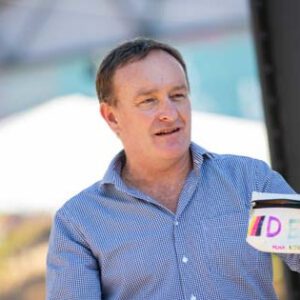 Chris founded The Hand Project in 2019 after seeing the demand for prosthetics in developing countries while working on a similar project for a New Zealand-based team building company. The Hand Project provides mechanical prosthetic hands to people in developing countries completely free of charge. The hands are 100% mechanical, giving recipients their quality of life back, and are assembled during team building events worldwide. Chris has personally fitted over 1,000 hands!
Chris founded The Hand Project in 2019 after seeing the demand for prosthetics in developing countries while working on a similar project for a New Zealand-based team building company. The Hand Project provides mechanical prosthetic hands to people in developing countries completely free of charge. The hands are 100% mechanical, giving recipients their quality of life back, and are assembled during team building events worldwide. Chris has personally fitted over 1,000 hands!
About Vernonica Kidemi:
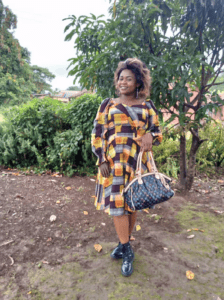 Veronica’s story is one of trauma, resilience, and bravery. After suffering the loss of her hand during a violent attack by her husband in Tanzania, Veronica founded the Voice of Women Africa (VOWA) to advocate for women’s rights and empower young girls and women all over Africa. She received a prosthetic hand from The Hand Project in 2020, training herself to use it to continue teaching, supporting her two boys, and acting as an ambassador to promote the project and mobilize beneficiaries around the globe.
Veronica’s story is one of trauma, resilience, and bravery. After suffering the loss of her hand during a violent attack by her husband in Tanzania, Veronica founded the Voice of Women Africa (VOWA) to advocate for women’s rights and empower young girls and women all over Africa. She received a prosthetic hand from The Hand Project in 2020, training herself to use it to continue teaching, supporting her two boys, and acting as an ambassador to promote the project and mobilize beneficiaries around the globe.
About Shannon Lane DuPont:
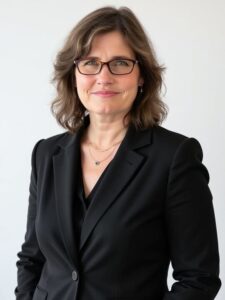 As director of program development at TeamBonding, Shannon DuPont is responsible for creating, customizing and executing new events. She works directly with corporate clients from every industry to assess their needs and find innovative ways to meet them. Her passion for the job inspires her to develop programs that empower teams to explore and build strong bonds, embracing vision and company culture. Shannon currently is focusing on building new CSR programs with the power to make real impacts, both nationally and internationally.
As director of program development at TeamBonding, Shannon DuPont is responsible for creating, customizing and executing new events. She works directly with corporate clients from every industry to assess their needs and find innovative ways to meet them. Her passion for the job inspires her to develop programs that empower teams to explore and build strong bonds, embracing vision and company culture. Shannon currently is focusing on building new CSR programs with the power to make real impacts, both nationally and internationally.
And the thing, the thing that got me that I was so focused on the actual doing the fitting of this hand that I never really looked at the person. Until the very end. And when I looked up, he had, he had tears running down his cheeks. And, um, I'll never forget that. It still gives me goosebumps to this day. And I could sense the relief and the feeling of possibility for this man.
Chris Gulley, founder of the Hand Project
More great podcast episodes.
Season 6 | Episode 18
That’s a Wrap!
Season 6 | Episode 17
Work-Life Integration
Season 6 | Episode 16
Laughing it Off
Season 6 | Episode 15
Corporate Volunteerism in Action
Season 6 | Episode 14
Collaborative Play at Work
Season 6 | Episode 13
The Science of Supportive Workplaces
Season 6 | Episode 12
The Power of Being Present
Season 6 | Episode 11
The Age Advantage
